The 19th
LaureatePainting
Daniel Buren
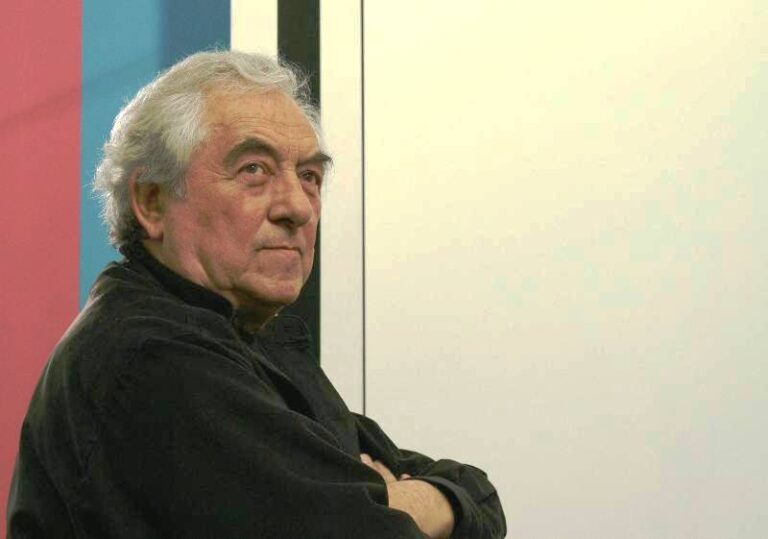
Daniel Buren introduced a breath of fresh air into the world of conceptual art with his pioneering site-specific works. Since 1965 he has used regular contrasting stripes that he calls "a seeing tool." The width of the trademark stripes is always a standard 8.7 centimeters. Through the years,he has positioned these stripes with various media on canvas,cloth and objects. Buren gained public attention in 1969 and 1970 by putting up hundreds of unauthorized striped posters in metro stations in Paris and Tokyo. In 1986,his controversial work of striped columns,Two Plateaus,at the Palais Royal courtyard drew great attention and assured his status as a leading artist. Later in the same year he represented France at the Venice Biennale and won the Golden Lion Award. He has exhibited widely in Europe,America and Japan. He says he has come to Japan nearly 200 times since 1970,and continues to question worldwide the nature of artistic conception and perception.
Biography
Throughout his career,Daniel Buren has radically questioned the nature of art and the systems that support it. He introduced a breath of fresh air into the world of conceptual art with his pioneering site-specific works.
Buren studied painting in the late 1950’s at the Ecole Supérieure de Métiers d'Art in Paris and started out drawing abstract paintings until around 1965 when he was drawn by the appeal of stripes. Since then he has used regular contrasting stripes that he calls "a seeing tool"The width of the trademark stripes is always a standard 8.7 centimeters wide.
His signature "seeing tool"stripes have become indispensable to his work,and through the years,he has produced artworks with the stripes drawn on canvas or dyed on cloth or molded into three dimensional objects. By reducing his paintings to their simplest visual and physical elements,emptying them of all illusion and subjectivity,Buren questioned the traditional expectations of form. He says that ordinary spaces and objects suddenly gain new characteristics and show a new relationship with their surroundings once they are viewed with stripes.
Buren gained public attention in 1969 and 1970 by putting up hundreds of unauthorized striped posters in metro stations in Paris and Tokyo. In 1986,his controversial work of striped columns,Two Plateaus,at the Palais Royal courtyard drew great attention and assured his status as a leading artist. Later in the same year he represented France at the Venice Biennale and won the Golden Lion Award.
Buren has produced innumerable projects internationally,including major shows at the Musée National d'Art Moderne,Centre Georges Pompidou,Paris in 2002 and at Solomon R. Guggenheim Museum,New York in 2005. He was introduced to the Japanese public as early as 1970 when he first visited the country as a participant in the "Humanity and Matter"exhibition at the Tokyo Metropolitan Art Museum.
Many of his site-specific works are removed from their sites and disappear after the exhibition is over,and he says,"I do not believe art works should be eternal."
Buren continues to question worldwide the nature of artistic conception and perception.
Chronology
Daniel Buren is one of the most renowned artists on the international art scene and indeed one of the most productive. Upwards of 1,600 exhibitions, one third of them solo exhibits, have been held on all continents. He nurtures a special relationship with Japan where ever since 1970, when he participated in the 10th Tokyo Biennale, he has produced several permanent public pieces and more than 60 exhibitions. Of note is the extraordinary involvement of the Kanransha gallery in Tokyo, which held a dozen exhibitions of Daniel Buren's work between 1982 and 1993.
First video work with the Gerry Schum gallery, Düsseldorf, Germany
"Peinture-Sculpture", work censored at the "VIth Guggenheim International" exhibition, Guggenheim Museum, New York
Golden Lion for best pavilion at the 42nd Biennale in Venice
« Sens dessus-dessous, travail in situ et en mouvement » ("work in situ and in motion"), commissioned by Lyon Parc Auto for the Celestins parking lot in Lyon, France (prize for finest parking lot in Europe received in Budapest, Hungary
Stage designer for the Sophie Calle exhibition at the French Pavilion of the Venice Biennale
-
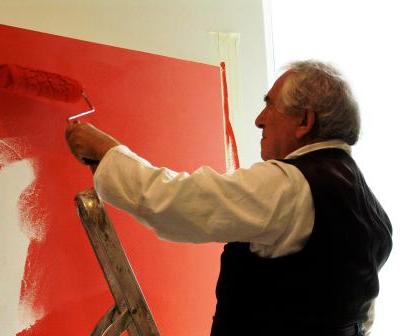
At Lisson Gallery in London
-
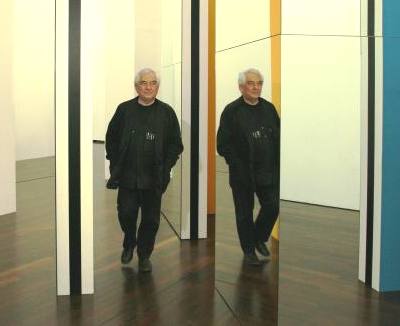
At MAC/VAL in the suburbs of Paris
-
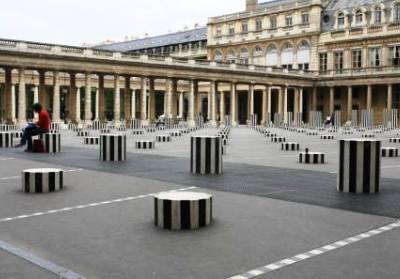
Les Deux Plateaux, work in situ, Cour d'honneur du Palais-Royal, Paris, France, 1985-1986
-
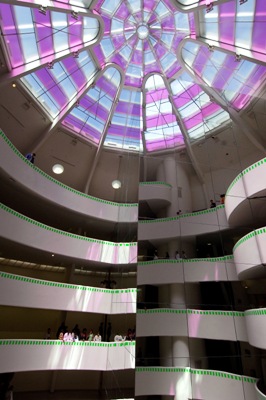
Photo-souvenir:Around the corner, work in situ, in The eye of the storm, Guggenheim Museum, New York, 2005
-
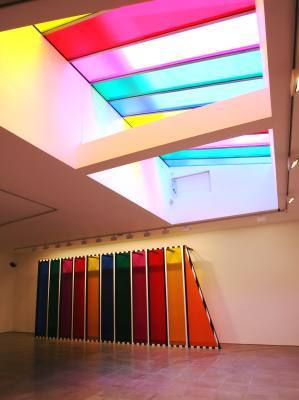
Dislocated Skylight, 2007 Lisson Gallery, London
-
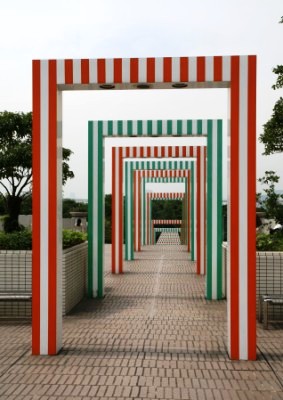
25 Porticos: The Color and its Reflections, permanent work in situ, Odaiba, Tokyo, 1996
-
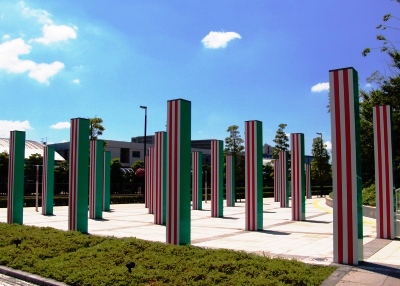
Somewhere along the way, some colors, work in situ for Toki Messe, Niigata,2003

